IN THE MINDS OF MEN?
IN THE MINDS OF MEN?
by Norman Warwick
There is a Tom Paxton song that tells us that ´the thought stayed free´ which is one of his typically clever little songs that carries several million meanings. In one hearing it is a glorious celebration of the fact that pure thoughts cannot be supressed but on another hearing reminds us that an idea of evil, once shaped, cannot be supressed either.
Now the author of The Girls, talks about her new short story collection, Daddy, and about weathering a plagiarism allegation. Just for good measure she also speaks about Harvey Weinstein and ´what goes on in the minds of men´, so come follow your art down the sidetracks and detours of imagination as we eavesdrop on a conversation between Guardian writer Hadley Freeman and author Emma Cline
In the many photos of Emma Cline that appeared in the media in 2016, when her hugely successful first book, The Girls, was published, she tended to look both severe and fragile, guarded yet also exposed. Not since the publication of Zadie Smith’s White Teeth in 2000 had a young woman made such a splash with a debut literary novel and, as with Smith, people were as fascinated by the author as they were with her book. Cline, then 27, was paid an almost unprecedented $2m advance, and the film rights sold before the book was even published. She was photographed in Vogue, interviewed by the New Yorker, feted everywhere. Yet she always looked like she was holding her breath, as if she was watching something terrible approach on the horizon. So I’m a little surprised to be greeted by a relaxed and smiling young woman on my computer screen when Cline, now 31, and I connect by Zoom.
´I’m editing a novel that I wrote last year, but only in fits and starts. I haven’t been working in a concentrated way, and I’m very jealous of people who have been. I just feel tremendously stupid, like I’ve lost all personality,” she laughs, when I ask how she’s been spending lockdown. “I was hoping to turn in a final draft by the end of the summer, but time has gone so sticky.´
Cline is talking to Hadley Freeman from her home in Los Angeles, where she’s been living on her own for the past five months, since moving from New York in March.
´Which was a very strange time to move. I’d been in New York for nine years, and I love it so much, but it’s also a place where you’re very aware of [everyone’s] social context, professional context. That can be what’s so wonderful about it, that you have this cohesive experience of living when you’re in New York, and in LA it’s much more choppy. But it’s also free of context in a way I really like´.
As in The Girls, with its woozy yet precise evocation of 1969 Los Angeles, Freeman reminds readers that Cline has a way of describing things that feels both elegantly casual and satisfyingly beady.
The two are speaking ahead of the publication of Cline´s first collection of short stories, called Daddy, although none of the stories in the book has that title.
´The word has this very innocent sweet meaning, but it has also come to take on all this cultural baggage, this weird psychosexual identity stuff about power dynamics. I see [those subjects] coming up in my own work, over and over again´.
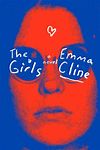
In The Girls, Cline fictionalised the Manson family, focusing – as the title suggests – on the women, rather than the male cult leader. In Daddy, Cline turns her attention mainly to men. The stories were written over a decade, but she realised when editing them together that the overall theme in the book is ´the twilight years of a certain male figure´, she says. In the opening story, What Can You Do With A General, a formerly violent father, now wearied with age, endures the disrespect of his adult children. (The title comes from a song of the same name, from the 1954 film White Christmas, about the irrelevance of a retired army general.) In Son Of Friedman, a former movie executive faces the disappointments of his older years, including a more successful friend and a disappointingly unsuccessful son:
It was almost embarrassing´, we are told, ´how fervently George had believed that everything would continue to get better and better, life a steady accrual of successes, of moments becoming only more vivid and more pleasurable. Then George got divorced and moved to New York, after which his career slowed down, gradually and then all at once´.
In Menlo Park, Ben, who has been publicly shamed for something unspecified, attempts to start over as a ghost writer, using prescription drugs to forget about how he destroyed his own life.
´That was one of the last stories I wrote and it probably feels the most connected to things that happened recently´, Cline says, referring to the #MeToo movement. ´It wasn’t a conscious thing [to write about men], but I think it’s a function of living in this society, you’re forced to imagine what’s going on in the minds of men´.
The stories are largely told from the male perspective, so the reader is privy to how they view their behaviour: ´When [the waitress] retreated, leaving Richard alone with his son and the crying girl, it occurred to him, with the delayed logic of a dream, that the waitress must have thought he was the bad guy in all this,´ a father thinks in Northeast Regional, after bullying his teenage son’s girlfriend in a restaurant.
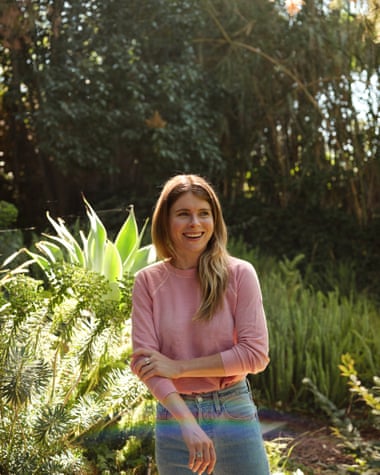
´I think just living life as a woman, you get a pretty good sense [of how men think], unfortunately´, Cline says. Yet she presents her male figures without judgment.
´I’ve always been interested in the stories people tell themselves, how they see themselves. That’s something that’s been more in the air recently, as men especially have had to apologise publicly and present their self-narratives. I’m not interested in excoriating my characters, where you and the reader can feel some moral superiority to them. I’m trying to replicate something of their inner lives. I always go back to my own consciousness, what it feels like to be inside a head, and I want to give everyone the benefit of having that totality´.
Cline’s generosity towards these men is especially remarkable, given that she has written about her own experiences of being sexually harassed: the writer who groped her after she won a literary prize, the photographer who harangued her to pose on a bed until she started to cry, the boyfriend who choked her during a fight.
´I think with the violence I experienced, physical or another kind, if you extract a moral from it, it almost validates it as something that had a bigger meaning, something that followed logic, and if there’s one thing I know about humans, it’s that they don’t follow logic´.
Instead, she says, people act in ways ´that are motivated by aggression or fear´. She has no time for the currently popular theory that to write about such men accords them a dignity and attention they don’t deserve.
´Reading and writing are not endorsement. I keep going back to curiosity, and the idea that you wouldn’t be interested in how these men think of themselves is very bizarre to me, especially when the culture is fascinated by these men´.
Cline (right) plays on this cultural fascination most obviously in a story that isn’t in Daddy, but was published by the New Yorker in June: White Noise, which fictionalises the inner life of Harvey Weinstein the night before his trial verdict. At first, Weinstein seems simply pathetic, padding about on his own in the dark, imagining his triumphant comeback. Then he remembers how he used to bully people into giving him things they did not want to give: ´Some people resisted, some people did not. Some people went still, unmoving; some people started laughing, out of discomfort. He enjoyed it all, even these milder victories – it was like different flavours of ice-cream. And, ultimately, he was always sated, the other person breathing hard, squinting, shifting, some new shame in her face.´
One of the lawyers who worked for Weinstein was the American attorney David Boies, who helped Weinstein hire private investigators who went on to dig up dirt on his female accusers to discredit them. Boies was also the lawyer for an ex-boyfriend of Cline’s, who in 2017 accused her of plagiarising his work in a draft of The Girls. In May of that year, Cline received a 110-page draft complaint, with Boies’s name at the top of it, which included 13 pages of private conversations between Cline and former partners, as well as intimate photos of her. They had been taken from an old computer of hers that now belonged to the ex-boyfriend, and the lawyers claimed they contradicted Cline’s account of how she had been treated by him during their relationship.
There was a breath-taking irony that an author whose debut novel was about how men exploit women should then herself be exploited in this way. Eventually, the private sexual details were removed from the complaint, and in 2018 a judge dismissed the allegations of plagiarism. ´There was never any period of [The Girls’] publication where [the case] wasn’t happening´, Cline says, which at least partly explains her look of strain in the photos from that time.
This conversation with Hadley Freeman is the first big interview Cline has done since the case was dismissed, and her hands fidget, we are told, as she senses the topic coming, but her voice remains steady. She says the Boies connection had nothing to do with her interest in Weinstein, but agrees the allegations against her ´broadened my understanding of how dark things can be: If you’d asked me before, does that happen still, that you could weaponise things like that against a woman in this moment, I would have resisted that idea. So to see it play out was very surprising and obviously painful´.
Using a woman’s sexual past against her is always meant to provoke shame, and Freedman asked Cline if she felt that, or if she was able to see it at the time as an outrageous abuse of power.
´Whatever traits push you to being a writer are probably connected to being hypersensitive and feeling like you’re open to the world. So in no way did I feel well protected. It was very hard not to experience it like a total assault.
‘When I was editing all the stories together I did think: Oh shit, is my worldview this bleak?’
Cline loathes the cliché that the experience might have made her stronger – ´I feel like that’s a way of retroactively validating it´ – but she does feel that it taught her something:
´I’m no longer attached to the idea of having a certain kind of response from other people to my work.” Being publicly accused “forces you to carve out a space where you feel solid about yourself and your work, and I feel like I’ve got there´.
Cline was born and raised in northern California. She was the second of seven children, and she makes an apologetic laugh at the size of her family.
´My parents come from big families, but I wonder about it so much, what it must have been like to have seven children in 10 years´.
Growing up in such a big family had obvious effects on her, Freeman suggests, apparent through her interest in group dynamics, a need for her own space – and also less obvious ones.
´We were an unwieldy group to take out in the world, so we never went on vacation. By default, we were quite isolated in our family unit, and that led me to reading and wondering so much about what the world was like, and what other families were like, and that led to acting´.
Cline appeared in short films when she was younger.
´But writing always felt much more natural to me. I went to a very new school which was very open to contemporary fiction, and my success rate on reading the classics is still very low. Instead I read Denis Johnson, Mary Gaitskill and Steven Millhauser – things I could connect to. And that made writing feel a lot more possible as something I could do´.
While studying at Columbia she wrote a short story, Marion, which appears in Daddy, and which won the prestigious Plimpton prize from the Paris Review. Then she wrote The Girls. It looked, from the outside, like an effortless sunny rise to literary glory but, Freeman tells us, suddenly, dark shadows loomed.
Daddy is very different from The Girls, its style more crisp than the earlier novel’s dreaminess. But it does share with its predecessor a feeling of dread: in every story, there is a heavy sense of a shoe about to drop.
´It’s definitely not how I experience life moment to moment. But do I see things that lead me to believe that often the forces behind how we live our lives are ominous, or have a quality of darkness? That checks out to me.´
It had been an interesting, provocative and revealing feature / interview in which Emma Cline had spoken openly about whether she drives her writing or her writing drives her. When I shortly afterwards found another Guardian article, in which she was discussing her reading, rather than her writing, I found that, too, absolutely fascinating.
´I’m halfway through A Way of Life, Like Any Other by Darcy O’Brien, a demented and perfect novel from the late 70s about the mythology of Hollywood intersecting with the mythology of family. It’s insanely good, and the tone is so sparky and bizarre and deadpan. I just finished a Beach Boys biography – a book about fathers as the great villains, which paired in interesting ways with the documentary Crumb [about underground cartoonist Robert Crumb]. In both cases, brothers are psychologically destroyed by their fathers in an era when fathers were held up as the ultimate god/daddy figures. And then the brothers go on, in their art, to pervert these seemingly innocent forms of the culture: comics and pop music.
I wish I had written Sweet Days of Discipline by Fleur Jaeggy. Sometimes a heightened world can be hard to keep up for the length of a novel, but this is slim and totally successful at sustaining a surreal atmosphere. Or Sylvia by Leonard Michaels, which has always felt like the perfect book. Oh wait, actually Norman Rush’s Mating.
The books that have had the greatest influence on my writing are probably the stories of Mary Gaitskill, Joy Williams and Deborah Eisenberg. I’m looking for that slight hallucinatory vibe in my own writing, a sense that the world has ever so slightly been knocked off its axis.
Problems by Jade Sharma is so great, and I wish it was more widely known and read. I also loved The Sarah Book by Scott McClanahan. Both books, its seems to me, are sadly under-rated.
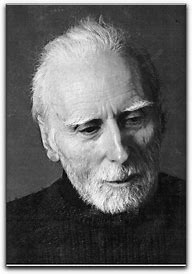
The last time a piece of writing made me cry was after my friend remembered a line from a poem by Jack Gilbert (right) as “it’s dark in the major nation”. Which seemed to fit this current moment when so-called American exceptionalism is exposed as the fiction it always was. I looked it up in Gilbert’s The Great Fires and the actual line is, “this dark is a major nation”. And then I reread his poem Alone, about his wife, Michiko – it always makes me cry.
Writing can make me laugh, too, of course.The psychedelic and totally hilarious nonfiction book by Bett Williams called The Wild Kindness. There’s a killer scene where the narrator is on mushrooms and having a conversation with their dog and the dog is very calmly recounting that he’s part of MKUltra [the CIA psychological warfare programme involving human experiments]. And I have been rereading Percival Everett’s Erasure: I forgot how funny that book is.
I only got a little ways into The Golden Bowl by Henry James. I’ll probably try again, but I’m not too worried about it.I don’t feel shame about reading habits. Reading anything because you think you “should” doesn’t make a lot of sense to me. It seems more pleasurable and more useful to follow whatever bizarre interests and tastes are peculiar to you.
Books I sometimes give as a gift include Leonard Koren’s Undesigning the Bath, The Pattern Language by Christopher Alexander, Sara Ishikawa and Murray Silverstein, and Bento’s Sketchbook by John Berger.

My earliest reading memory is probably of the Busy Town books, which delighted me with their illustrations of what I assumed adult life would look like: animals wearing vests and running bookstores. I also obsessed over Sherlock Holmes.
Some people really like the transporting nature of experimental prose or spare autofiction, but when I want to fully peace out of reality, I like being dropped into another life entirely, one that feels as rich and detailed as possible. The Marriage Plot by Jeffrey Eugenides was a comforting reread lately, because the scenes have the quality of life. Anywhere But Here by Mona Simpson is comforting for the same reason, a fictional world that is so tightly woven that it blots out the actual world.
Jack Gilbert, referred to by Emma, will be known to many of you as the writer of The Forgotten Dialect Of The Heart. We posted as feature on his work at Sidetracks and Detours recently called jack Gilbert, which, of course is still in our archives.
- Daddy by Emma Cline is published by Chatto & Windus (£14.99). To order a copy go to guardianbookshop.com. Free UK p&p over £15
The prime source for this article was a piece published as the Guardian´s an interview between the newspaper´s Hadley Freeman and author, Emma Cline.
In our occasional re-postings Sidetracks And Detours are confident that we are not only sharing with our readers excellent articles written by experts but are also pointing to informed and informative sites readers will re-visit time and again. Of course, we feel sure our readers will also return to our daily not-for-profit knowing that we seek to provide core original material whilst sometimes spotlighting the best pieces from elsewhere, as we engage with genres and practitioners along all the sidetracks & detours we take
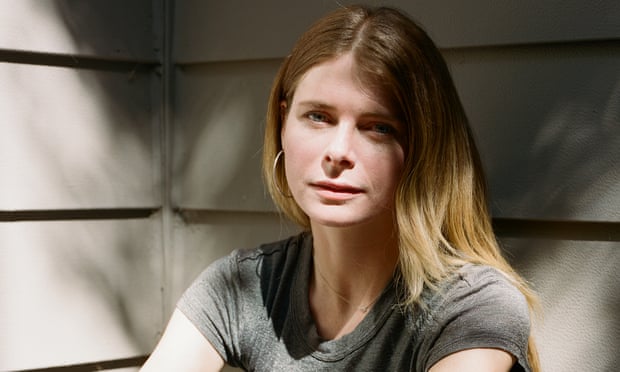

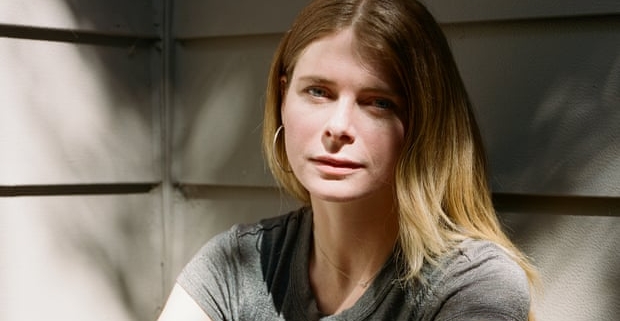


Leave a Reply
Want to join the discussion?Feel free to contribute!